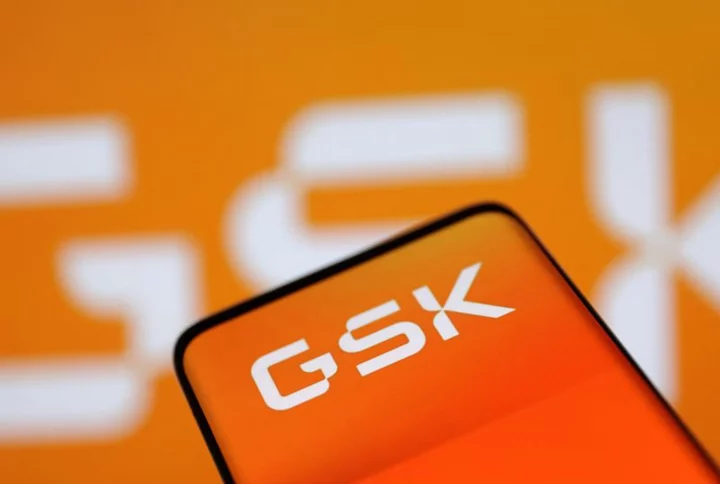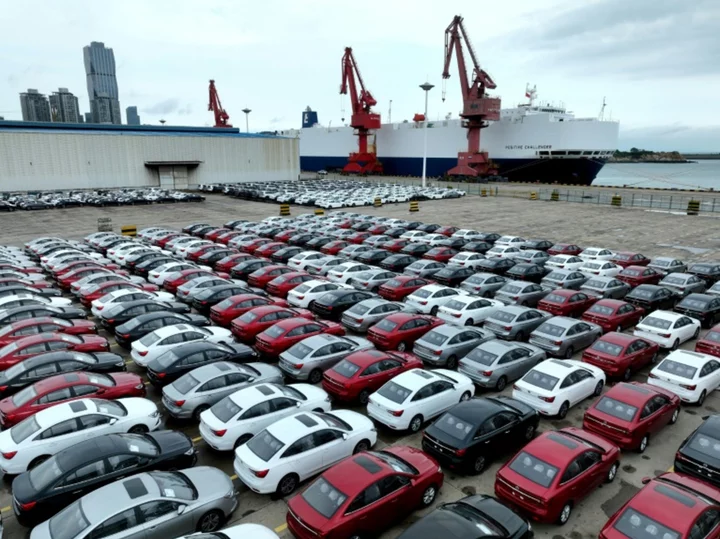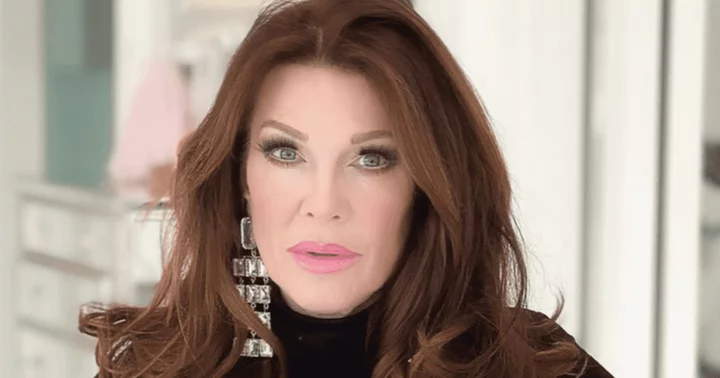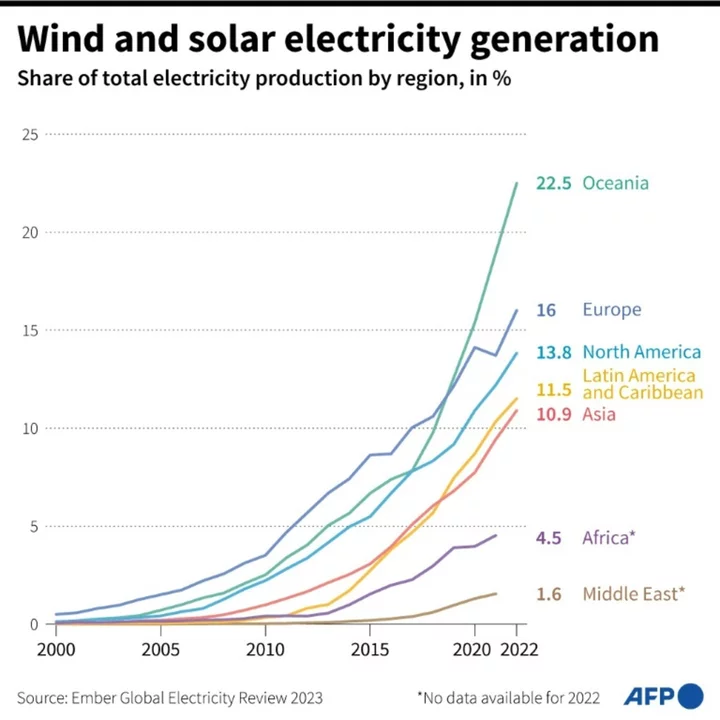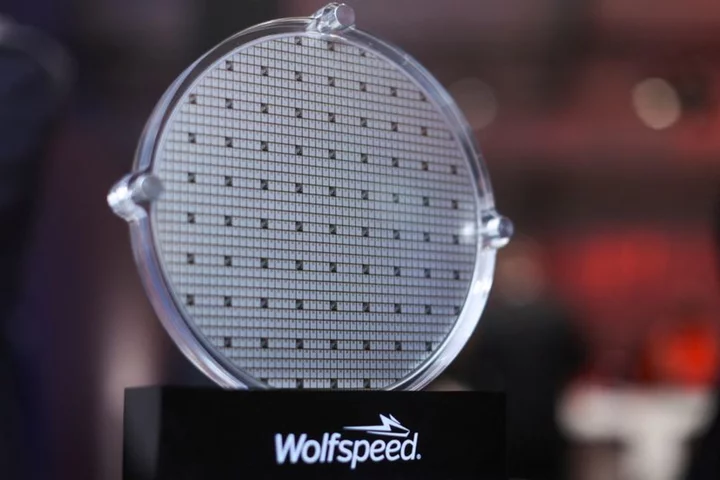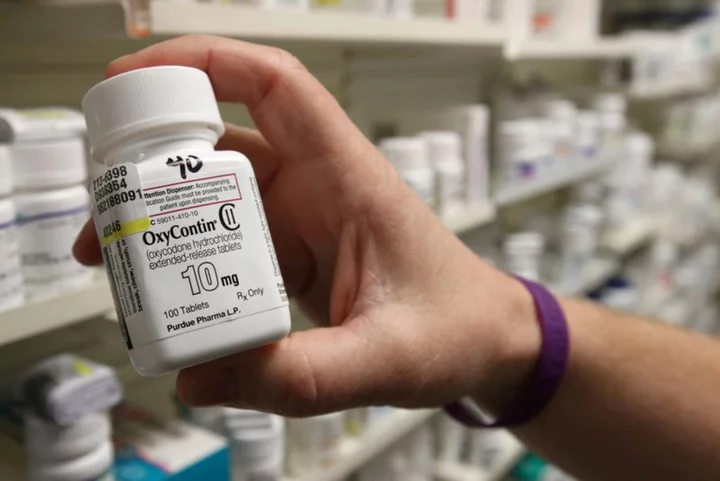By Natalie Grover and Eva Mathews
(Reuters) -GSK agreed to settle a U.S. lawsuit alleging its discontinued heartburn drug Zantac caused cancer, the British drugmaker said on Friday, preventing the first such case from going to trial next month.
The company said it had reached a confidential deal with Californian resident James Goetz who says he developed bladder cancer from taking the drug.
GSK on Friday said the settlement reflected its desire to avoid distraction related to protracted litigation in this case. It did not admit any liability and said it would vigorously defend itself in any other Zantac cases.
The trial was due to start on July 24, the first test of how Zantac cancer claims would fare before a jury.
The British drugmaker's shares were up nearly 6% at 1024 GMT, making it the best performer on London's blue-chip FTSE 100 and set for its best day this year.
"It was this headline risk with a trial date right around the corner that was keeping investors on the sidelines in GSK," Barclays analyst Emily Field wrote in a note.
Apart from a small number of cases pending in California, most of the remaining Zantac U.S. litigation involves more than 75,000 cases in the state court in Delaware, with hearings likely in January.
Lucy Coutts, investment director at wealth management firm JM Finn, which holds GSK shares, said the Goetz settlement could create a precedent to settle other cases.
"It also removes the distraction of any protracted litigation as the company must focus on its future pipeline which is where value will be created for shareholders," she said.
Originally marketed by a forerunner of GSK, the drug was later sold by several companies, including Pfizer, Boehringer Ingelheim and Sanofi, as well as generic drugmakers.
Companies facing litigation scored a victory in December, when a federal judge threw out tens of thousands of Zantac cases in U.S. federal courts after finding the opinions of the plaintiffs' expert witnesses linking the drug to cancer were not backed by science.
Bank of America analysts on Friday said they continued to see the litigation risk of Zantac to be low in absolute terms, suggesting that the settling the Goetz case would have likely cost GSK "low hundreds of millions" in dollars in the worst case.
In a note, they predicted cases in Delaware were unlikely to progress to trial, and considered GSK's strategy of avoiding large public damages against them in "plaintiff-friendly courts as sensible as litigation is inherently unpredictable".
Pfizer and Sanofi settled with Goetz late last year.
Concerns about protracted legal wrangling and compensation wiped almost $40 billion off the market value of GSK, Sanofi, Pfizer and GSK-spin-off Haleon over roughly a week in August.
First approved in 1983, Zantac became one of the first drugs to top $1 billion in annual sales.
In 2019, some manufacturers and pharmacies halted Zantac sales over concerns that its active ingredient, ranitidine, degraded over time to form a chemical called NDMA. While NDMA can be present in low levels in food and water, research has found it causes cancer in larger amounts.
The FDA in 2020 withdrew from the market all remaining brand name Zantac and generic versions, triggering a wave of lawsuits. The companies involved have repeatedly denied that Zantac can cause cancer.
Friday's settlement follows a setback for GSK in March, when a California judge disallowed the company's attempt to keep expert testimony on whether the drug is linked to cancer out of the trial.
(Reporting by Natalie Grover in London and Eva Mathews in Bengaluru; Editing by Dhanya Ann Thoppil and Barbara Lewis)

